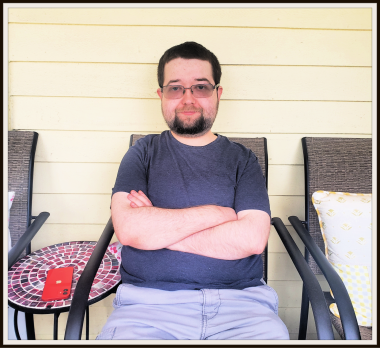A Progress Report on My Son’s 8-year Transplant Anniversary
Colleen Steele's son Cullen would've celebrated, but he's busy with college midterms

My son Cullen was 8 when he was diagnosed with pulmonary hypertension (PH). Like it or not, his health and treatments became a common topic of conversation with family and friends.
Although not ordinarily superstitious, we became cautious about reacting too excitedly when asked if his PH treatments were helping. I can’t count the times we’d just finished giving a favorable report when his health would suddenly decline or he’d have a PH episode and end up in the hospital.
I developed the habit of saying “knock on wood” after sharing positive reports, followed by three comical thumps to the side of my skull — as if doing so would avoid jinxing him.
Cullen, now 22, is grateful to his donor for the heart and lungs that saved his life in 2014, but he remains cautiously celebratory about his health.
It often surprises people to hear that Cullen no longer has PH since receiving a transplant. Still, as I mentioned in a previous column in 2019, the “cure” also had “considerable risk, scary statistics, and demanding responsibilities. Essentially, he traded one disease for another,” I wrote.
I noted that Cullen was five years post-transplant at the time. I remember wanting to celebrate his milestone and share in his success over daunting transplant statistics. Instead of tempting fate, though, I shared the reality of the challenges he had faced to reach that big anniversary.

Cullen Steele celebrates his eighth year after a successful heart and double-lung transplant, which took place on Aug. 7, 2014. (Photo by Colleen Steele)
On Aug. 7, Cullen quietly celebrated eight years post-transplant. This year, instead of preparing for a slew of medical appointments and procedures, he was taking college midterms. Comparing his current post-transplant care to what it was three years ago is the best way to give you an idea of how he is doing.
The honeymoon is over, which is good
Follow-up care for the first five years after transplant is grueling, especially around the anniversary. I shared some highlights of Cullen’s post-transplant checkup itinerary in the 2019 column. In simple terms, the goal is to ensure his new organs are still happy in their new home and to detect any adverse changes to his condition before they become serious problems.
This year, Cullen’s anniversary quietly came and went. He had an appointment with a lung transplant doctor, which involved a quick and easy pulmonary function test and a brief discussion.
I asked when he would have his yearly comprehensive pulmonary function test with a bronchodilator. That test is much more time-consuming and exhausting. We were surprised and happy to hear that he won’t need one again unless there is a concern.
Another welcome change is that he no longer needs annual cardiac catheterizations and bronchoscopies. During a bronchoscopy, doctors collect a tissue sample to detect any possible infection or organ rejection and to assess airway complications. It is an important procedure that provides valuable information, but it comes with risks. A pneumothorax, or collapsed lung, is a common bronchoscopy risk for transplant patients. Air or gas in the cavity between the lungs and the chest wall can cause the lung to collapse.
Cullen has reached a point where how well he is doing relies heavily on open and honest communication with his doctors, along with monthly lab work and compliance as a patient, which he has been doing from the start.
Another difference is what hasn’t changed
In January, our other son, Aidan, 21, asked how many medications his brother takes daily. The easiest way to answer was by counting the number of pills Cullen swallows in a week. The total was a mind-blowing 224 pills.
I imagine that number must be difficult for someone who hasn’t had a transplant to wrap their brain around. I’m going to baffle you even more by noting that it’s been a welcome change that those pills, give or take a few, have stayed the same for the past three years.
I have a full bag of unused medications to remind us of the first five years after transplant, as doctors tweaked, added, or removed treatments when Cullen struggled with rejection, posterior reversible encephalopathy syndrome, migraines, high blood pressure, kidney disease, and osteoporosis. And let’s not forget the critical goal of keeping his transplant medication levels where they needed to be.
I will eventually dispose of the expired medications at the drug store bin, but for now, they remind us to never take stability for granted.
What’s special right now?
Cullen is seen by multiple specialists, including in cardiology, nephrology, and neurology, to name a few. Previously, he could never go a month without multiple appointments, but his calendar has been far less busy in the past few years.
Thankfully, as medications stabilized Cullen’s health, they also helped regulate his medical appointments. Who knew an empty calendar could make someone feel so special?
Eight years post-transplant and, knock on wood, Cullen is doing well.
Note: Pulmonary Hypertension News is strictly a news and information website about the disease. It does not provide medical advice, diagnosis, or treatment. This content is not intended to be a substitute for professional medical advice, diagnosis, or treatment. Always seek the advice of your physician or other qualified health provider with any questions you may have regarding a medical condition. Never disregard professional medical advice or delay in seeking it because of something you have read on this website. The opinions expressed in this column are not those of Pulmonary Hypertension News or its parent company, BioNews, and are intended to spark discussion about issues pertaining to pulmonary hypertension.









Comments
Carol Conrad
Great job, Cullen!!!! Good luck on your exams!!!
Colleen Steele
Thank you, Carol! Cullen continues to achieve straight A's and was accepted to the UW. As you know, we will be moving so he had to decline. He is thinking about applying to UPenn!
We hope you are doing well! Thanks for reading!
Robyn Doyle
Hello Colleen,
I don't want my daughter to have a heart and double lung transplant, as you said he 'traded one disease with another.'
My daughter has been unwell and disabled since the day she was born. She was born with a rare genetic condition - Primary Ciliary Dyskinesia which caused Kartagener Syndrome, Heterotaxy Syndrome, Congenital Heart Disorder, Pulmonary Arterial Hypertension and Eisenmengers Syndrome. When she was eventually diagnosed with severe PAH at 16 years old. The specialist at the time stated she won't live to her forties and unlikely make it into her forties, she is now 27. We have now stated talking about transplant with her doctor and will be referred to the cardio-thoracic surgeon to carry out investigations because my daughter has Heterotaxy syndrome and Dextrocardia. The surgeon needs to know what blood vessels supply what organs and where they travel, he needs a specific map for my daughter's surgery. Thank you for the information and very well written. Do have a blog or somewhere else you have written about Cullen, yourself and family I can read?
Colleen Steele
Robyn, I'm sorry for not responding to this sooner. Thank you for reading the column and sharing a bit of your daughter's story. I love hearing about patients who beat the odds! Where are you at with the decision now? If you haven't already I encourage you to join the PH Forums where we can chat some more.
Cullen has a Caringbridge blog but it's been years since I've updated there. My column is where you can find the most about his PH and transplant journey.